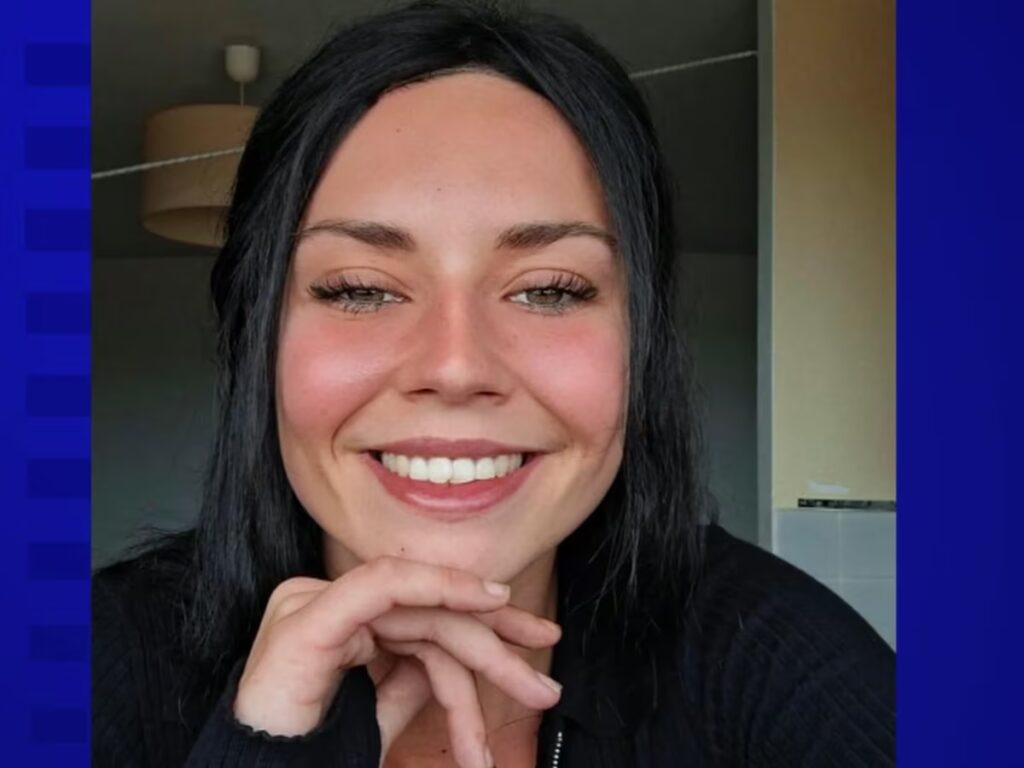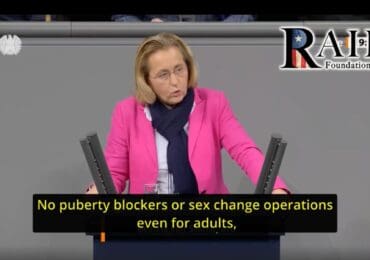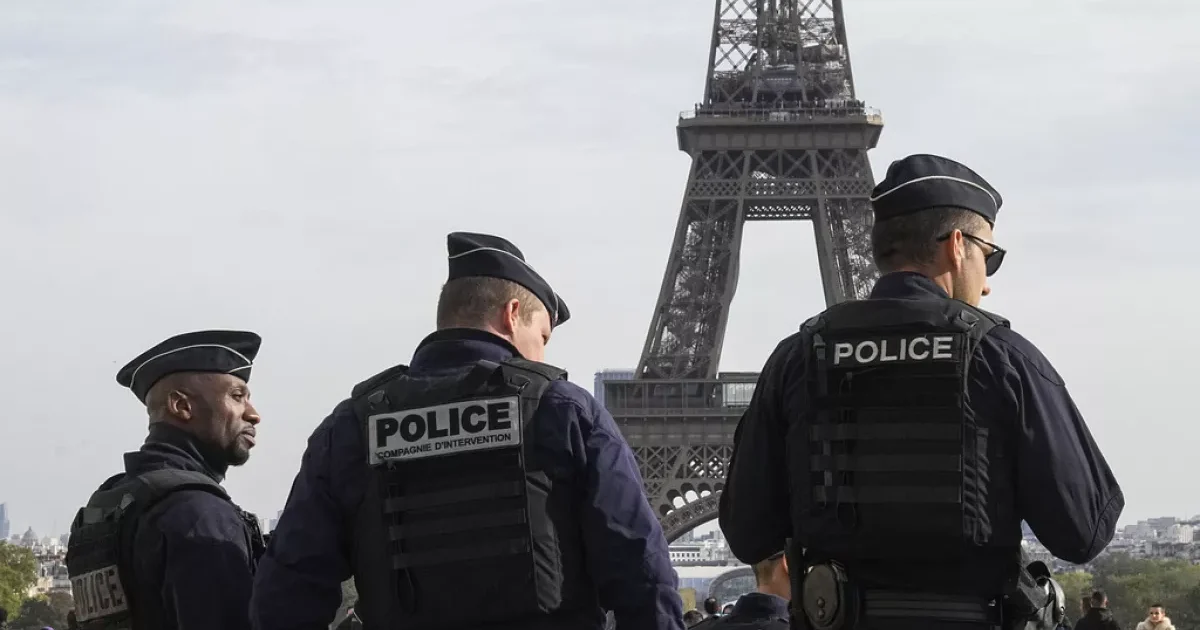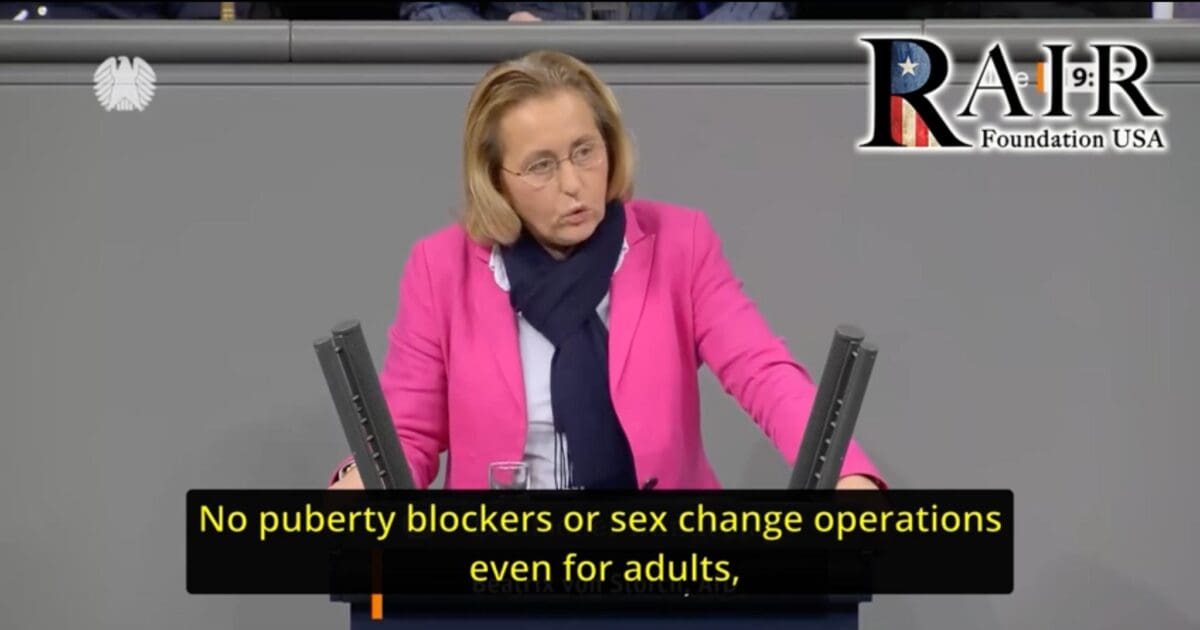Barbara, a 24-year-old French woman full of dreams, passions, and a promising future ahead of her, became the latest victim of a justice system that repeatedly prioritizes leniency over public safety. On December 9, 2024, her lifeless body was found in her Avignon studio, brutally murdered by a convicted Islamic migrant who should never have been free to roam the streets.
The Suspect: A Repeat Offender Left Free to Kill
Barbara’s suspected killer is Fouad Lazaar, a 34-year-old Moroccan national with an shocking history of 17 prior convictions. Just a week after his release from prison, Lazaar struck again, robbing Barbara of her life. His criminal history includes death threats, kidnapping, torture, aggravated violence, illegal possession of weapons, drug trafficking, and driving without a license—a record so damning that his freedom defies all logic and justice.
In 2023, Lazaar was caught with a machine gun, cartridges, a bulletproof vest, and drugs in his apartment, raising alarms about the clear and present danger he posed. Despite this, he was handed a light sentence of just two years and released back into society, where he went on to commit the ultimate crime.
Lazaar’s violent past dates back years. At the age of 27, he and his brother were sentenced to four years in prison for a chilling crime: stabbing a young man multiple times and slashing the tires of his vehicle. According to Dauphiné Libéré, one of the stab wounds punctured the victim’s lung. The victim survived only because of his weight, which prevented the blade from reaching vital organs.
Barbara’s Final Moments
Barbara, who had been diagnosed with schizophrenia at the age of 17, was particularly vulnerable. She had moved to the Balance district of Avignon, where she was building a life around her passions: music, foreign languages, and manga. She was a familiar face at Place Pie, a lively area surrounded by bars, where she apparently met Lazaar shortly after his release from prison.
But on December 9, her mother’s desperate attempts to contact her were met with silence—except for a single, suspicious text message: “C bn il et partit (sic) C ok.” [It’s good, he has left, it’s OK.]
This message, riddled with spelling errors and out of character for Barbara, was sent by her killer in an attempt to cover his tracks. Very worried, Barbara’s mother went to her daughter’s house the next day, on December 10, but found the studio locked and no one answering. She contacted the firefighters, who called the police to force the door open.
Inside, the scene was one of unimaginable horror: Barbara lay in a pool of blood, with her lower body naked, blows to her face, and a dislocated finger. The autopsy revealed she had been strangled to death.

Rue de la Balance in Avignon where Barbara’s murder took place © Radio France – Romain Berchet
A Fugitive’s Escape
After committing the crime, Lazaar fled France using his brother’s identity card to board a train to the Netherlands. He was eventually arrested in Amsterdam on December 25, not for Barbara’s murder, but during a shoplifting incident. Recognizable by his shaved head and a scar on his forehead, Lazaar was apprehended under a European arrest warrant issued by the Avignon prosecutor’s office. He is expected to be transferred to France in the coming weeks.
A System That Failed Its Citizens
Barbara’s murder raises urgent questions:
- How could a migrant with such a violent and extensive criminal record still be in France?
- Why was he not deported after his first conviction—or his seventeenth?
- How many more lives must be lost before the borders are closed and violent offenders are removed from society?
This tragedy exposes the devastating failures of France’s open-border policies and its lenient justice system. Barbara was not just a victim of a violent criminal; she was a victim of a system that refused to act.
The Call for Accountability
Barbara’s blood is not only in Lazaar’s hands but also in the hands of those who allowed him to remain in France. The Avignon prosecutor’s office has opened an investigation for “murder with acts of torture and barbarity committed by an organized gang,” reflecting the sheer cruelty of this crime. Under French law, this designation can apply even if only one person committed the crime, particularly if there was premeditation or suspected coordination with others.
The open-border, left-wing leaders ruling France should be held accountable for aiding and abetting Lazaar’s crimes. Their policies directly enabled this tragedy by prioritizing criminals over the safety of the public.
Not until politicians are charged and held responsible for these crimes will anything change. Barbara was not just another name in the headlines—she was a daughter, a sister, and a young woman who deserved protection from the system that failed her.
Demand Justice
Barbara’s story is a wake-up call to a nation and a world grappling with the consequences of unchecked immigration and leniency for violent criminals. Her life was stolen by a man who should never have been in France, let alone free to kill.
It’s time to demand justice—not just for Barbara, but for every victim of a system that refuses to prioritize its own citizens.
RIP Barbara. May your story bring the change that is so desperately needed.















Add comment